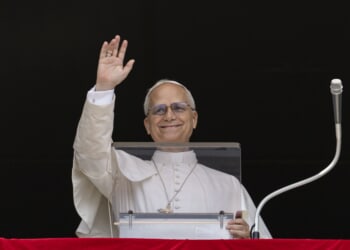Andrew Gilligan is a writer and former No10 adviser.
Jean-Claude Juncker, the former European Commission president, didn’t leave much to the world, apart from the quote which sums up British politics’ big problem. “We all know what to do”, he said. “But we don’t know how to get re-elected once we have done it.” Or in the Tories’ case, how to get elected if we propose it.
Privately, many people agree that they do know what to do. End the triple lock, the widespread winter fuel allowance, and other pensioner benefits that the country cannot afford and that many of the recipients, wealthier than the generations below them, do not need, and help fund social care, relieving the pressure on the NHS, by requiring people my age to use some of our unearned property windfalls, instead of charging younger taxpayers who struggle to buy a home at all.
Cut taxes on good things – such as work, investment and enterprise – and pay for it by raising taxes on bad things, such as pollution, congestion, and gambling. Allow fracking. Radically simplify tax and benefits in general. Don’t pretend that housebuilding and development can all be put safely in Labour-voting cities.
But most of this, of course, is absolutely not what voters want to hear. Theresa May tried the social care bit in 2017, admittedly ineptly, and look where it got her. People complain that politicians don’t tell the truth – but the last thing they want is the truth. They want to be told they can pay less and get more.
And while these policies will improve growth, and while improving growth is our most important task, the idea that growth will ‘fix’ our fractured politics or win an incumbent party re-election is not borne out by experience in, for instance, the United States, whose economic boom did not calm the public mood, or save the Democrats.
Growth to most people is an abstraction. To work politically for those delivering it, it’s got to create improvements that people can feel. That’s hard to achieve, particularly in the short term, and many voters – for instance, those affected by new housing or fracking sites – will certainly feel that it makes their lives worse.
So what’s the answer? Should politicians just lie about what they intend? Or should they think up stealth ways of doing what needs to be done – keep the triple lock, say, but claw it back by taxing the wealthier recipients? Neither would do much for public trust.
Some of it you could do honestly by boiling the frog, promising and then making gradual changes every year for many years. That would require a level of strategic pre-planning, consistency of implementation, and stability of personnel which no party has managed for a while, but which is in any case necessary for success in office.
Perhaps, too, voters might listen if treated as adults. Maybe you could level with people. Declare an emergency: not an actual state of emergency, but a statement that the country is stuck, in a mess, that drastic action is needed, that here is your serious, detailed and convincing plan but that it will not be easy or quick.
It sort of worked for Margaret Thatcher, though she didn’t spell it all out before her election; however it was still very bumpy for her, even though the media-political climate was less fractious and splintered. (There were also fewer lawyers, activists and regulators, though your serious, detailed and convincing plan would explain, well ahead, what you’d do about those.) David Cameron and George Osborne’s austerity was fairly popular at the start, too, though it did spare the elderly.
Voters’ unhappiness is partly because no government seems to be in control. So they might still respond to leadership, firmness, clarity and direction, even if the direction was not one they would instinctively have chosen.
Away from the slow-turning tankers of the economy, tax and spending, there are too some areas where results can be achieved faster, and the smack of firm government can be felt. In a single term, you probably can’t deliver economic growth that people can feel. But with a strong enough plan for policing, immigration and asylum, you probably can deliver improvements in crime and public order.
Even if it doesn’t work, being the only party that tells the hard truth would be the right thing to do. It would be distinct from the haplessness of Labour, at the mercy of their mushy-minded backbench, and the cakeism of Reform. It would give the Tories their dignity back. And it might work – if not at the next election, then the one after.





![Gavin Newsom Threatens to 'Punch These Sons of B*thces in the Mouth' [WATCH]](https://www.right2024.com/wp-content/uploads/2025/08/Gavin-Newsom-Threatens-to-Punch-These-Sons-of-Bthces-in-350x250.jpg)
![ICE Arrests Illegal Alien Influencer During Her Livestream in Los Angeles: ‘You Bet We Did’ [WATCH]](https://www.right2024.com/wp-content/uploads/2025/08/ICE-Arrests-Illegal-Alien-Influencer-During-Her-Livestream-in-Los-350x250.jpg)








